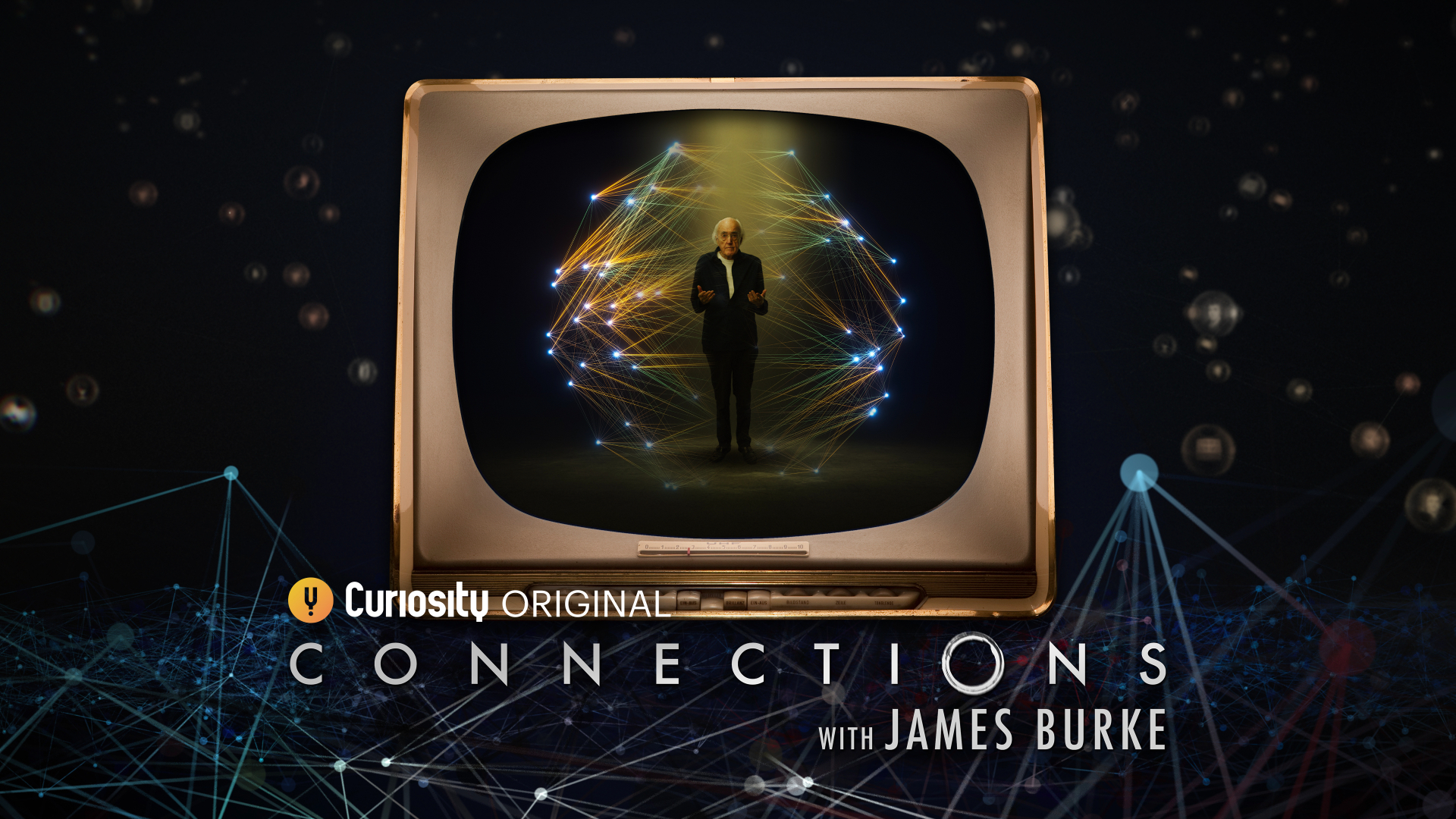
Space.com recently had the opportunity to talk with James Burke about the revival of his popular docuseries "Connections with James Burke," 45 years after it first aired.
Each of the six episodes of the new series takes you on an astonishing journey through history to a point in the future via a series of unlikely and surprising connections. The show highlights why the future is being shaped by everything we do and how it is going to be different from what we think it will be.
Who'd have thought you could go from ship-boring worms to AI-powered avatars so realistic they'll be indistinguishable from us, or from Napoleon Bonaparte's toothpick in 1814 to quantum computers so powerful they can predict the future? Yet Burke lays out these intriguing links and more in this entertaining and thought-provoking series.
Related: AI is already helping astronomers make incredible discoveries. Here's how
All episodes will be available to stream on Nov. 9, 2023, on Curiosity Stream.
The following Q&A with James Burke has been edited for length and clarity.
Space.com: It's been 45 years since the first episodes of "Connections" aired, and technological advances since then have been colossal. Were you faced with new challenges when putting together this new series?
James Burke: I was particularly interested in the history of change and the developments that led to [change], and then I had to decide something before I began, which was, What are the shows' ending? And in that sense, I found six endings that I thought were important in our own future. They were the development of free energy, the further development of the internet, genetics, avatars, predictive analytics and the nanofabricator.
So my trick was that I was going to go backwards to find a way of linking the future to the past. In a sense, technological change over the last 300 years didn't matter that much unless I fell across it by accident on this trip.
The name of the game, as it always was with "Connections," was to find links that would keep people watching because they would be unexpected or intriguing or amazing.
What I did was to start by reading and widening circles around that thing, whatever it was; let's say it's the internet in the future. Read backwards to find an antecedent around that and then read backwards and find an antecedent around that,each time looking for an antecedent that was likely to be surprising and, with a bit of luck, amusing and informative. And there's a lot of it, so it was an easy way to do the job. The hardest trick was to find out when to stop.
Space.com: What was your favorite connection?
Burke: My favourite one was Napoleon's toothpick, which ended up as predictive analytics. The good thing about that is, nobody knows where you are going if you start with Napoleon's toothpick.
Space.com: You talk about the future of AI. Do you think humans will be able to keep up with AI? Should we be worried?
Burke: Well, the business of being worried about things you don't understand has been around forever. How many people understand quantum mechanics today? The vast majority of the human race has survived very well not understanding quantum mechanics and all the other things that scientists do.
I expect artificial intelligence to at least equal the processing capabilities of the human brain fairly early. But that doesn't mean anything, really, because you can't pull a plug on a human being; you could pull a plug out on artificial intelligence. Unless it builds a way to stop you, of course.
Will artificial intelligence get to the point where it "knows" what it is, and that, therefore, how to protect itself is best done by making it impossible to turn it off? That would be the only thing I think we should be spending a lot of time thinking about. I'm not scared about that. But I think, if we were going to be scared, I think it would be down that route.
But apart from that, it could be the greatest thing since writing as a tool for developing and sharing knowledge. I do think it will put us all out of work, yes, but then we'll find something else to do.
Space.com: In the "end of scarcity" episode, you discuss nanofabricators. Do you think these machines are the future of human space exploration?
Burke: Yes, nanofabricators will probably feed and supply us on such a trip. If we want to have egg and chips on Mars, we'll have egg and chips.
Space.com: Where do you see the next 25 years of space travel and technology heading?
Burke: It's going to be pretty difficult to imagine us going anywhere outside the solar system in 25 years, and I think it's going to be difficult to see us going much further than Mars as human travelers. I think we'll be sending much more complex machines to the outer edges of the solar system than we have so far because that's what technology is making possible.







